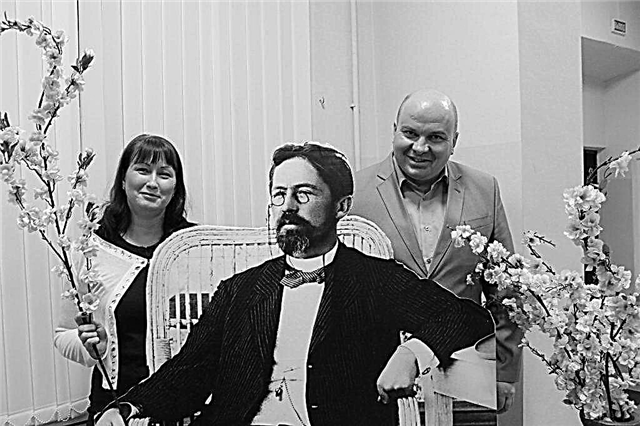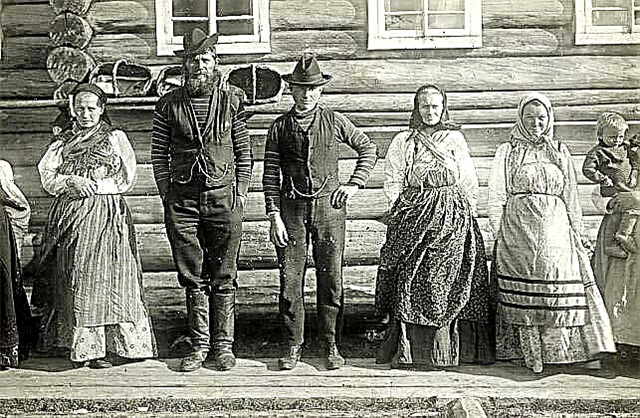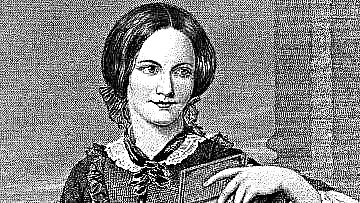Pascal says: "All the rules of decent behavior have long been known, stopping for the small - for the ability to use them."
Any principle is contradictory, any term is interpreted differently. But upon comprehending man, one can comprehend everything.
Book I. On Mind in General
Some people mix the properties of the mind with the properties of character, for example, the ability to speak clearly and think confused, and think that the mind is contradictory. But the mind is only very diverse.
The mind is based on three basic principles: imagination, thinking, memory.
Imagination is the ability to imagine something with the help of images and with their help express their ideas.
Thinking is a gift that allows you to focus on ideas, ponder and combine them. This is the starting point of judgment and evaluation. Memory is the keeper of the fruits of imagination and thought. The power must correspond to the mind, otherwise it leads either to the scarcity of thought, or to its excessive breadth.
Fertility. Barren minds cannot understand the subject as a whole; minds are prolific, but foolish, cannot understand themselves: the fervor of feelings makes their thought work hard, but in a false direction.
Cleverness is manifested in the speed of the mind. It is not always associated with fertility. There are smart, but barren minds - a mind that is alive in conversation, but dying away at a desk.
Insight is the ability to comprehend phenomena, ascend to their causes and predict their consequences. Knowledge and habits improve it.
Clarity is the decoration of judgment, but not everyone with a clear mind is judicious. Judiciousness and distinctness of imagination differs from judiciousness and distinctness of memory, feeling, eloquence. Sometimes people have incompatible ideas, which, however, are linked in memory by upbringing or customs. Features of mores and customs create differences between people, but also limit their properties to a certain framework.
Common sense boils down to the ability to see any object in proportion to our nature or position in society; it is the ability to perceive things from their useful side and to evaluate sensibly. To do this, just look at everything. Reason must prevail over feeling, experience over thought.
Depth is the goal of all thought. The deep mind must hold the thought in front of the eyes in order to examine it to the end. Acumen is always acquired at the cost of depth.
Delicacy is sensitivity, which depends on the freedom of customs. Subtlety - a kind of wisdom in matters of feeling; it happens without delicacy.
The breadth of the mind is the ability to assimilate many ideas at the same time, without confusing them with each other. You cannot become a genius without her.
Inspiration - an instant transition from one idea to another, which can be interfaced with the first. These are unexpected turns of the mind. Jokes - superficial products of influx.
Good taste is the ability to judge things related to feeling. This is the ability to feel the beautiful nature. The taste of the crowd is not true. The arguments of the mind can change our judgment, but not taste. About the syllable and eloquence. Not always one who thinks well can express his thoughts in words; but the splendor of the syllable with the weakness of the idea is shaped nonsense. Simplicity, accuracy and naturalness give nobility to presentation. Some are eloquent in conversation, others alone with the manuscript. Eloquence animates everything: science, deed, poetry. Everything obeys him.
About ingenuity. To invent means not to create material for inventions, but to give it a shape, like an architect, to marble. Sample of our searches is nature itself.
About talent and reason. Talent is unthinkable without activity; it also depends on passions. Talent is a rarity, because it requires combinations of various virtues of the mind and heart. Talent is original, although all the great people followed the patterns: for example, Cornell - to Lucan and Seneca. Reason should denote a combination of rationality, depth and other qualities, but usually only one of these abilities is called the mind - and they debate which one.
About the character. Character contains everything that distinguishes our mind and heart; It is woven from contradictions.
Seriousness is a private character trait; she has many causes and varieties. There is the seriousness of a calm mind, the seriousness of an ardent or noble mind, the seriousness of a timid person, and many other varieties of it. The seriousness of distraction affects eccentricities.
Resourcefulness - the ability to use the opportunity in conversation and business. It requires quick wisdom and experience.
About distraction. There is absent-mindedness arising from the fact that the work of the mind is slowed down in general, and sometimes from the fact that the soul is focused on one thing.
Book II. About the passions
Locke teaches: any passion originates in pleasure or suffering. Since pleasure or suffering is caused by different people for different reasons, everyone understands different things as good and evil. However, there are two sources of good and evil for us: feelings and thoughts. Impressions of the senses are instant and unknowable. Passions generated by thought are based either on the love of being, or are nourished by a sense of one’s own imperfection. In the first case, gaiety, meekness, moderation in desires occur. In the second, anxiety and melancholy appear. The passions of great people are a combination of both.
Laroshfuko says that in love we seek only our own pleasure. But you need to distinguish between selfishness and selfishness. Self-love allows you to love yourself outside of the person (in a woman, in glory and in other things), and self-love puts us at the center of the universe. Pride is the result of pride.
Ambition is the result of striving to push the limits of one’s personality; it can be both virtue and vice.
Glory drowns our sorrows better than anything else, but this is not virtue and not merit, but only a reward for them. Therefore, do not rush to condemn the desire for glory. Passion for glory craves external greatness, and passion for science - craving greatness from within. Arts depict nature, sciences depict truth. The knowledge of a rational person is not too vast, but thorough. They need to be put into practice: knowledge of the rules of dance will not benefit a person who has never danced. But any talent must be brought up.
Stinginess is the brainchild of an absurd distrust of the circumstances of life; passion for the game, on the contrary, was born of an absurd belief in chance.
Fatherly love is no different from self-love, for the child in everything depends on the parents and is associated with them. But children have pride, so children love fathers less than fathers - children.
Pets please our pride: we imagine that the parrot loves us, appreciates our affection - and we love him for this advantage over him.
Friendliness gives rise to the imperfection of our essence, and the imperfection of this affection itself leads to its cooling. We suffer from loneliness, but friendship does not fill the void. In youth, friends are more tender, in old age - stronger. Low in soul is one who is ashamed of friendship with people who have stained themselves.
About love. It is also possible love, free from crude sensuality, but the eye is infrequent. A man falls in love with the image he created, and not with a real woman. In general, in love, the main thing for us is the inner qualities, the soul. Love should not be confused with friendship, for reason rules friendship, and feelings rule love. You can not judge a person by his face, it’s much more interesting to see what kind of person he likes more than others.
Compassion is a feeling in which sadness is mixed with affection. It is disinterested, the mind has no power over it.
About hate. Hatred is a deep despondency that turns us away from what it is caused by - both jealousy and envy enter into this feeling.
A man respects everything that he loves, including himself.
The main feelings of a person: desire, discontent, hope, regret, timidity, ridicule, confusion, surprise. But they are all weaker than love, ambition and stinginess.
A person cannot generally control passions. it is impossible and not necessary to calm them down, because they are the basis and essence of our soul. But it is necessary to fight bad habits, and if we defeat them, all of God's will.
Book III. About good and evil as moral concepts
Good should be considered only that which is beneficial to the whole society, and evil - that which is disastrous for him. The interests of an individual must be sacrificed. The purpose of laws is to protect the rights of everyone.
Virtue is the preference of a common interest to a personal interest; and selfish interest is the source of all vices. Virtue does not bring people happiness because they are vicious, and vices do not bring benefits.
The greatness of the soul is the attraction to commit great deeds, good or evil. Therefore, other vices do not exclude great virtues, and vice versa.
About courage. There are many varieties of courage: courage in the struggle against fate, patience, courage, firmness and others. But they are rarely found all at once.
Sincerity is loyalty, unaware of suspicions and tricks. Moderation speaks of emotional balance. Prudence is sound judgment. Activity is a manifestation of restless strength, laziness is calm impotence. Severity - hatred of pleasures, severity - hatred of vices. Wisdom is an understanding of the essence of good and love for it.
Virtue is good and beauty together; for example, medicines are good, but not beautiful, and there is much that is beautiful, but not useful.
Mr. Cruise says that beauty is what our mind perceives as a complex, but inseparable whole, this diversity in unity.






 Life as a startup
Life as a startup




